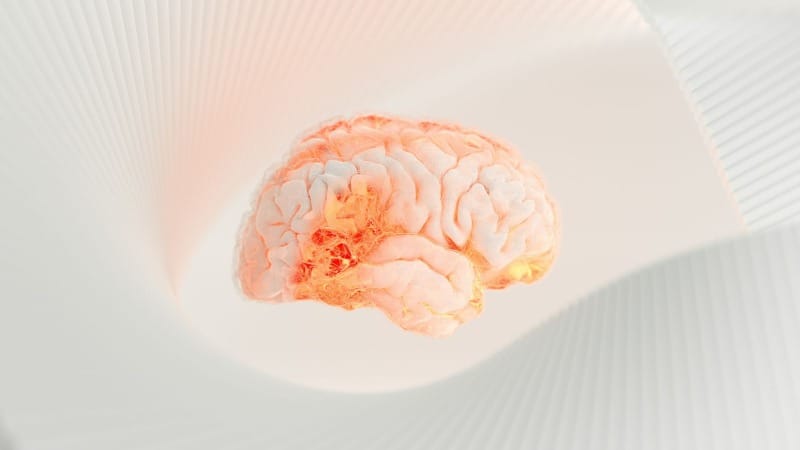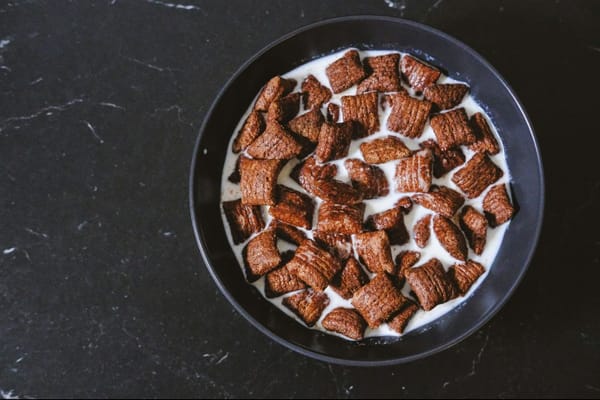For years, we've been told that our gut is home to trillions of tiny microorganisms that play a crucial role in our health. But what if I told you that your brain might have its own microscopic inhabitants? Recent scientific discoveries are challenging our understanding of the brain, suggesting that it may not be the sterile organ we once thought it was. This article explores the fascinating possibility of a brain microbiome and what it could mean for our health and well-being.
Key Takeaways:
- Scientists have found evidence of microbes in the brain, challenging the long-held belief that it's a sterile organ.
- The brain microbiome may be connected to various neurological conditions, including Alzheimer's disease.
- The gut-brain axis plays a crucial role in the relationship between our gut microbiome and brain health.
- Research on the brain microbiome is still in its early stages, and many questions remain unanswered.
- Understanding the brain microbiome could lead to new treatments for neurological disorders.
The Surprising Discovery of Brain Microbes
For decades, scientists believed that the brain was a sterile organ, protected from the outside world by the blood-brain barrier. This barrier acts like a security checkpoint, carefully controlling what enters and exits the brain. However, recent research has turned this idea on its head, suggesting that our brains might be home to their own unique ecosystem of microorganisms[3].
The concept of a brain microbiome first emerged in 2013, but it didn't gain much traction initially. After all, the idea that our most complex organ could harbor tiny living creatures seemed far-fetched. But as technology advanced and research methods improved, scientists began to uncover evidence that challenged this long-held belief[3].
The Brain Microbiome: What We Know So Far
Detecting Microbes in the Brain
One of the biggest challenges in studying the brain microbiome is detecting these microscopic inhabitants. Scientists use techniques that look for foreign genetic material, but this can be tricky because of the risk of contamination. It's like trying to find a needle in a haystack, but the needle could have come from outside the haystack[3].
The Blood-Brain Barrier and Aging
In healthy brains, the blood-brain barrier acts as a protective shield. However, as we age or develop neurological diseases like Alzheimer's, this barrier can weaken. This allows blood and potentially harmful substances to enter the brain, which could explain how microbes might find their way in[3].
Microbes in Diseased Brains
A groundbreaking study in 2013 looked at the brains of people with HIV/AIDS. The researchers found genetic material from over 173 types of bacteria and viruses in these brains. This was a significant discovery, as it suggested that microbes could indeed be present in the brain[3].
Another study by researchers at the University of Edinburgh found bacteria and fungi in the brains of people with Alzheimer's disease. Interestingly, they also found some of these microbes in healthy brains, but in much smaller amounts[3].
The Gut-Brain Connection
While the idea of a brain microbiome is still relatively new, we've known for some time that there's a strong connection between our gut and our brain. This relationship, known as the gut-brain axis, is a two-way communication system between our digestive system and our central nervous system[7].
The gut microbiome, which is the collection of microorganisms living in our digestive tract, plays a crucial role in this relationship. Research has shown that changes in our gut microbiome can affect our brain function and behavior[2].
How Microbes Might Enter the Brain
One theory suggests that diseases of the mouth, such as gum disease or tooth decay, could create pathways for oral bacteria to travel to the brain through the nervous system. Interestingly, some oral bacteria can produce amyloid proteins, which are associated with Alzheimer's disease when they form abnormal clumps in the brain[3].
Implications for Health and Disease
The discovery of a potential brain microbiome opens up exciting possibilities for understanding and treating neurological disorders. Just as an imbalance in gut microbes can lead to health problems, an imbalance in brain microbes could potentially contribute to diseases like Alzheimer's[3].
Alzheimer's Disease and the Brain Microbiome
Research has shown that people with Alzheimer's disease have more bacteria in their brains compared to healthy individuals. While no specific pattern of bacteria unique to Alzheimer's has been identified yet, this finding suggests a potential link between brain microbes and the disease[3].
Beyond Alzheimer's: Other Potential Connections
The brain microbiome might also play a role in other neurological conditions. For example, studies have found connections between gut microbiome imbalances and conditions like depression, anxiety, and autism. If the brain has its own microbiome, it could potentially influence these conditions as well[5].
The Future of Brain Microbiome Research
While the discovery of a brain microbiome is exciting, there's still a lot we don't know. Scientists are working to create a comprehensive map of the microbes present in a healthy brain. They're also trying to understand what factors control which microorganisms live in our brains and how they get there in the first place[3].
Potential for New Treatments
Understanding the brain microbiome could lead to new ways of treating neurological disorders. Just as probiotics can help balance our gut microbiome, we might one day develop treatments that target the brain microbiome to improve brain health[3].
Challenges and Unanswered Questions
Despite the progress made, many questions remain. We still don't fully understand how microbes enter the brain or what role they play in healthy brain function. Additionally, the brain microbiome seems to vary from person to person, making it challenging to define what a "normal" brain microbiome looks like[3].
Conclusion: A New Frontier in Brain Research
The discovery of a potential brain microbiome is reshaping our understanding of the brain and its relationship with the rest of our body. While there's still much to learn, this exciting field of research could lead to new insights into brain health and innovative treatments for neurological disorders.
As we continue to explore this microscopic frontier, we may find that the key to understanding our most complex organ lies in the tiniest of living things. The brain microbiome represents a new chapter in our quest to unlock the mysteries of the human mind, offering hope for better health and well-being in the future.
Citations:
[1] https://jneuroinflammation.biomedcentral.com/articles/10.1186/s12974-020-1705-z
[2] https://theconversation.com/the-brain-might-also-have-a-microbiome-what-you-need-to-know-229328
[3] https://www.news-medical.net/health/Is-there-a-brain-microbiome.aspx
[4] https://www.nia.nih.gov/news/beyond-brain-gut-microbiome-and-alzheimers-disease
[5] https://www.uclahealth.org/departments/medicine/gastro/research/themes/brain-gut-microbiome
[6] https://www.ncbi.nlm.nih.gov/pmc/articles/PMC4367209/
[7] https://www.nature.com/articles/s41392-024-01743-1
[8] 🧬 Our brain might also have its own microbiome (techno-science.net)














Member discussion